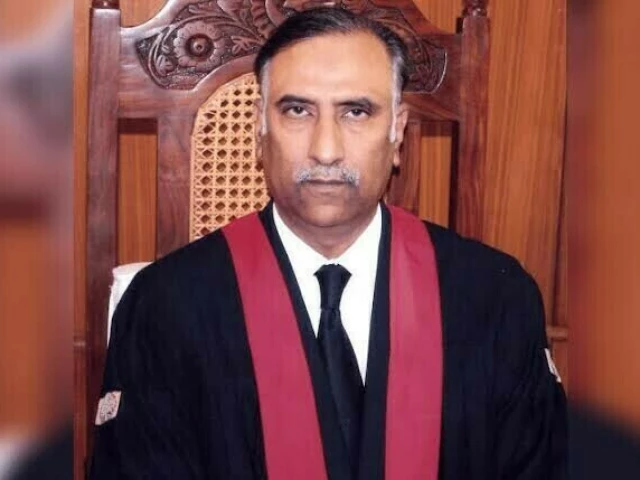IHC Journalists Association challenges PECA amendments
Acting IHC CJ Sarfaraz Dogar has inquired about the schedule for the case, which has been postponed for two weeks.

The Islamabad High Court Journalists Association (IHCJA) has filed a petition in the Islamabad High Court, challenging the government’s recent amendments to the controversial Prevention of Electronic Crimes Act (PECA).
The petition argued that the amendments constitute an "attack on press freedom" and requests a judicial review. The petitioner's lawyer has also asked the court to form a larger bench to hear the case.
The IHCJA's petition contended that the PECA amendments violate Articles 19 and 19A of the Constitution, which protect freedom of speech and information. It further claimed the law grants the government excessive censorship powers, infringing on digital rights.
Additionally, the petition argued that the regulatory authority created under Peca lacks constitutional legitimacy.
Acting IHC Chief Justice Sarfaraz Dogar directed that the case be linked with other pending petitions before Justice Inam Amin Minhas, who will decide on the request for a larger bench. The acting chief justice also inquired about the schedule for the case, which has been postponed for two weeks.
The amended law, which received assent from President Asif Ali Zardari, includes new definitions, the creation of regulatory bodies, and stricter penalties for spreading "false" information.
The amendments reduce the punishment for spreading fake news online to three years in prison and impose fines of up to Rs2 million. It also proposes the establishment of the Social Media Protection and Regulatory Authority (SMPRA), the National Cyber Crime Investigation Agency (NCCIA), and a Social Media Protection Tribunal.
The amendments empower individuals who feel aggrieved by false information to approach the authority for the removal or blocking of such content, with orders to be issued within 24 hours.
Additionally, the law allows the authority to require social media platforms to register with it, and establishes a Social Media Complaint Council to handle complaints.
The amendments also propose the creation of Social Media Protection Tribunals to resolve cases within 90 days, with appeals allowed to the Supreme Court within 60 days.



















COMMENTS
Comments are moderated and generally will be posted if they are on-topic and not abusive.
For more information, please see our Comments FAQ